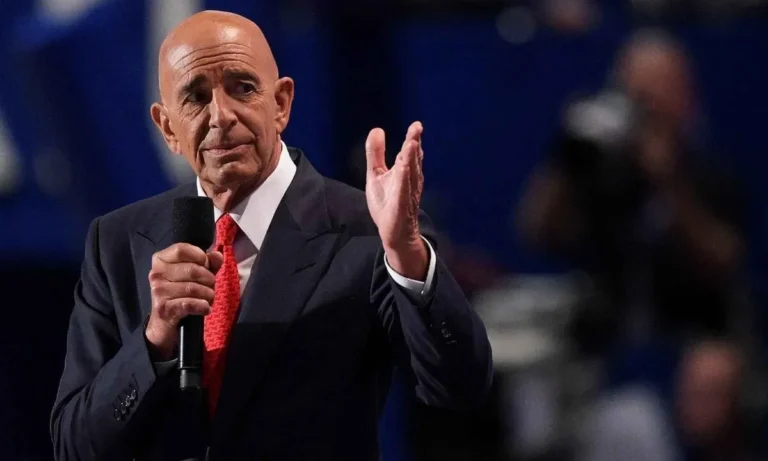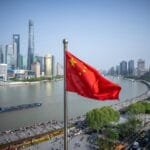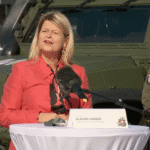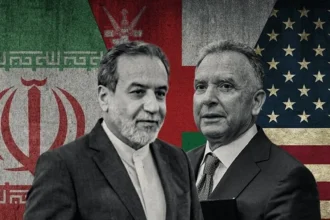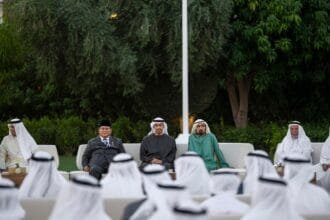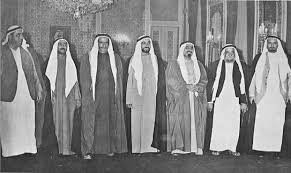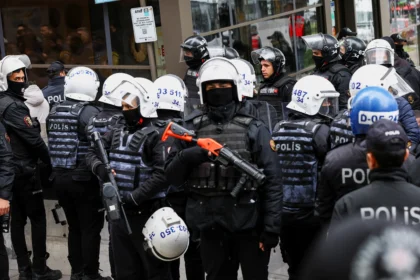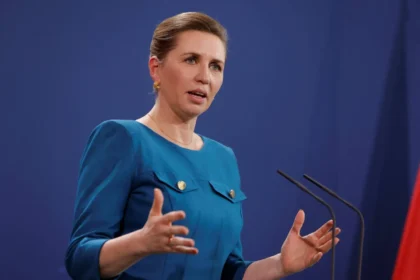Washington, United States – US envoy Thomas Barrack posted an analysis on his X account, describing it as a “personal view,” titled: “Syria and Lebanon are the next two pieces of the Levantine peace process.”
- Syria: Restoring stability and the key to security in the north
- Lebanon: Disarming Hezbollah is a prerequisite for peace
- Hezbollah’s influence and the obstacle to disarmament
- Lebanese elections and concerns about a possible postponement
- Lebanon’s Opportunity: Regain Sovereignty Instead of Surrender
- Final Warning: Potential Confrontation and Political Isolation
- Report summary
Barak said, “As Syria restores stability by normalizing relations with its neighbors, including Israel and Turkey, it constitutes the first leg of a security framework in northern Israel. The second leg must be the disarmament of Hezbollah in Lebanon and the initiation of security and border discussions with Israel.”
Barak touched on the cessation of hostilities agreement sponsored by the Biden administration in 2024, with American and international mediation, considering that it “sought to de-escalate the situation but ultimately failed. A direct agreement was not reached between Israel and Hezbollah because Lebanon still considers dealing with Israel a crime, and therefore there is no real mechanism for implementation. Iran continues to fund Hezbollah’s militia despite sanctions, and the divided Lebanese cabinet sends conflicting messages to the Lebanese army, which lacks funding and powers… The result: a fragile calm without peace, an army without authority, and a government without control.”
US envoy Thomas Barrack said on Monday that Hezbollah’s influence in the Lebanese government has obstructed the plan to disarm it, noting that these weapons threaten regional security as a whole.
The US Special Envoy for Lebanon and Syria added in press statements that Syria is the true test of the sustainability of the new regional order, noting that Lebanon is the natural extension of the peace process after Syria, and that disarming Hezbollah is a prerequisite for achieving regional security.
Barak added, “Washington presented a plan called ‘a last-ditch effort’ that included gradual disarmament under American-French supervision, but it was stalled due to Hezbollah’s influence in the Lebanese government,” he said.
The US envoy emphasized that Hezbollah’s continued weapons undermine sovereignty, inhibit investment, and make war with Israel a real possibility.
Barak said that Hezbollah may seek to postpone the 2026 elections under the pretext of war to avoid losing its influence, which could spark an internal crisis and rekindle the 2019 protests.
In another development, Trump’s envoy claimed that Saudi Arabia is “close to fully joining the normalization process, which will prompt other Levantine countries to follow suit,” he said.
Barak added regarding the relationship with Syria: “With Damascus more stable, Hezbollah becomes more isolated. The militia’s control from abroad undermines Lebanon’s sovereignty, deters investment, makes people lose confidence in their state, and constitutes a constant warning to Israel. But the incentives to act now outweigh the cost of hesitation: Regional partners are willing to invest, provided that Lebanon regains a monopoly on legitimate force through the Lebanese Army. If Beirut continues to drag its feet, Israel may act unilaterally—and the consequences will be dire.”
In his own opinion, Barak asserted that “disarming Hezbollah is therefore not only a necessity for Israel’s security; it is an opportunity for Lebanon to restore its sovereignty and achieve economic recovery. For the United States, it fulfills the vision of peace through prosperity and reduces direct American involvement. For the broader region, it removes a major proxy of the Iranian regime, alongside Hamas, and accelerates the pace of Arab modernization and integration.”
He continued, “This is why the United States sought to steer Lebanon toward a peaceful solution with Israel through incentives, not pressure, by linking Gulf aid to tangible progress, ensuring verification of implementation under American, French, and UN supervision, and strengthening the Lebanese army’s capabilities through targeted training and support (this month, the United States pledged more than $200 million additional to the Lebanese Armed Forces). Washington was prepared to provide diplomatic cover for Hezbollah’s peaceful political transition and coordinate regional statements linking investment to progress. The U.S. Special Envoy to Lebanon and Syria, Thomas Barrack, published a lengthy analysis on his X account titled, “Syria and Lebanon are the next two pieces in the Levantine peace,” which he presented as a personal viewpoint. He addressed regional developments and the future of the relationship between Israel, Syria, and Lebanon, focusing on Hezbollah’s pivotal role in determining the fate of security and stability in the region.
Syria: Restoring stability and the key to security in the north
Barak began his analysis by noting that Syria has begun to regain stability by normalizing relations with several of its neighbors, including Israel and Turkey. He considered this normalization to represent the first leg of a security framework in northern Israel. He emphasized that Syria’s moves toward a border agreement and future normalization with Israel constitute a strategic step toward securing Israel’s northern border.
Lebanon: Disarming Hezbollah is a prerequisite for peace
Regarding Lebanon, Barak believed that the second pillar of regional security must be the disarmament of Hezbollah and the initiation of direct security and border discussions with Israel. He considered the 2024 Cessation of Hostilities Agreement, sponsored by the Biden administration, to have failed due to the lack of a real implementation mechanism and the absence of a formal framework for negotiations between Israel and Hezbollah, as a result of Lebanon’s criminalization of any contact with Israel.
Regarding Lebanon, Barak believed that the second pillar of regional security must be the disarmament of Hezbollah and the initiation of direct security and border discussions with Israel. He considered the 2024 Cessation of Hostilities Agreement, sponsored by the Biden administration, to have failed due to the lack of a real implementation mechanism and the absence of a formal framework for negotiations between Israel and Hezbollah, as a result of Lebanon’s criminalization of any contact with Israel.
Hezbollah’s influence and the obstacle to disarmament
Barak asserted that Hezbollah’s influence within the Lebanese government is the primary obstacle to the implementation of the disarmament plan. He noted that Washington had presented a plan called “The Last Attempt,” in cooperation with France, calling for the gradual disarmament of the party under international supervision, but that it had stalled under pressure from the party’s political influence.
He also warned that Hezbollah’s continued possession of weapons threatens regional security, weakens Lebanese sovereignty, hinders investment, and keeps the possibility of war with Israel alive.
Lebanese elections and concerns about a possible postponement
In a related context, Barak indicated that the party may seek to postpone the 2026 elections under the pretext of the security escalation, to avoid losing its popular influence. This could recreate the 2019 protests and spark an internal political and social crisis.
The role of Saudi Arabia and the region in advancing the peace process
In his broader vision, Barak said that Saudi Arabia is close to fully joining the normalization process, which, in his view, will constitute a strong impetus for the rest of the Levant countries to join. He added that “the stability of Damascus further isolates Hezbollah” and increases pressure to disengage Beirut from the armed militias.
Lebanon’s Opportunity: Regain Sovereignty Instead of Surrender
Barak emphasized that Hezbollah’s disarmament should be presented not as a surrender, but as a restoration of Lebanese state sovereignty. He noted that Washington was prepared to provide diplomatic cover for the party’s peaceful political transition, linking Gulf aid to tangible progress in this direction.
He also revealed a new US pledge of more than $200 million to the Lebanese Armed Forces, as part of support for the army as the sole legitimate force representing the state.
Final Warning: Potential Confrontation and Political Isolation
Barak concluded his analysis by warning that Lebanon’s failure to act would lead to an inevitable confrontation between Hezbollah’s military wing and Israel, at a moment he described as one marked by unprecedented Iranian weakness and growing Israeli power. He warned that the party’s political wing would face internal isolation if the situation persisted.
Report summary
Thomas Barak believes the region faces a historic opportunity to redraw the peace map in the Arab Levant, starting with Syria and extending to Lebanon. However, the success of this process depends on dismantling armed groups outside state control, led by Hezbollah. Barak makes disarmament a condition for the security of Israel, Lebanon, and the region as a whole, and emphasizes that the incentives exist, but hesitation could lead to dangerous repercussions. He helps Beirut present disarmament as a restoration of sovereignty, not surrender. All these initiatives have faltered while the rest of the region is racing to expel Iran’s terrorist proxies.
Regarding the recent talks between Syria and Israel, Barak said: “Syria’s bold moves toward a border agreement and future normalization represent the first step toward securing Israel’s northern border, and disarming Hezbollah must be the second. Lebanon today faces a crucial choice: either take the path of national renewal or remain mired in stagnation and collapse.” He stressed that “the United States must support Beirut in quickly disengaging from the Iranian-backed Hezbollah militia and aligning with the regional tone of total rejection of terrorism before it is swallowed up by the wave of comprehensive rejection of terrorist organizations.”
Barak warned that “if Beirut fails to act, Hezbollah’s military wing will undoubtedly face a major confrontation with Israel at a moment of unprecedented Israeli strength and Iranian weakness. Simultaneously, its political wing will face the prospect of isolation as the May 2026 elections approach.”






